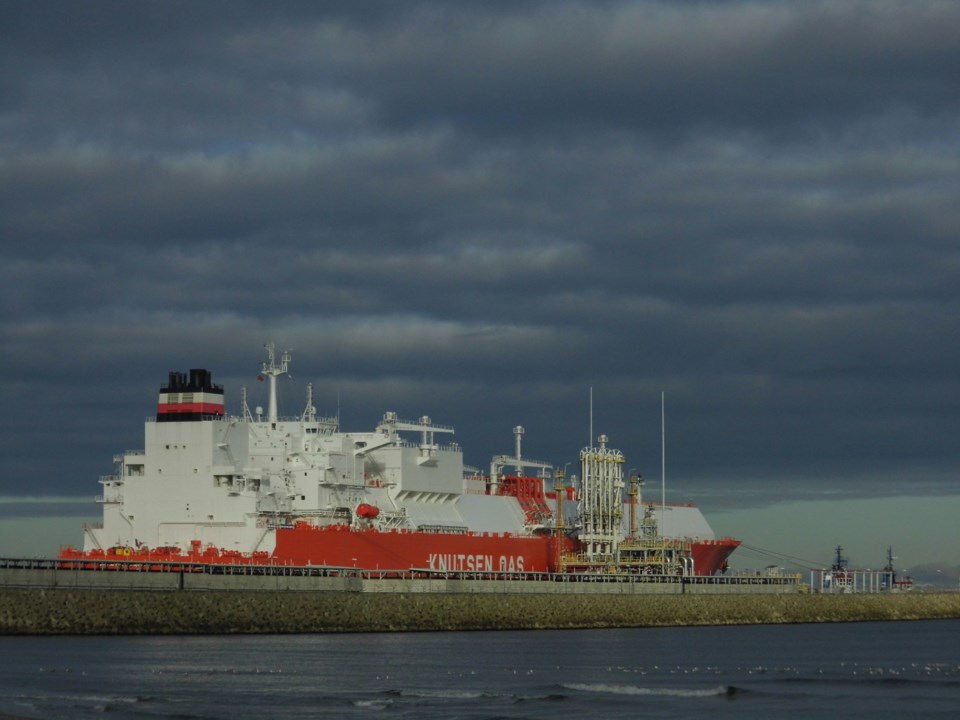Higher oil and gas exports are helping to drive growth projected for B.C.’s GDP even amid global trade uncertainty.
That’s according to a Deloitte LLP economic outlook released Wednesday that says the province’s economy is expected to grow by one per cent in 2025 — the sixth-highest growth rate among Canadian provinces.
At the same time, the recent cancellation of energy and resource projects across B.C. could put future growth projections at risk, according to additional, province-specific insights Deloitte sent to BIV.
Such projects include Pacific Future Energy Corp.’s Kitimat oil refinery, a proposed $10-billion facility capable of processing 200,000 to one million barrels of bitumen a day. It was cancelled in December 2024.
Another recent cancellation was E-One Moli Energy Corp.’s Maple Ridge lithium-ion battery plant expansion, a $1-billion project also halted in December. It was backed by $80 million from the B.C. government and more than $205 million for Ottawa.
B.C.’s GDP grew 1.2 per cent in 2024, down from a growth rate of 1.6 per cent the year prior, according to Statistics Canada.
Softer growth for B.C. this year can be attributed to high household debt levels and uncertainty over tariffs, added the Deloitte report.
Adam Pankratz, a lecturer at the University of British Columbia’s Sauder School of Business, said it's tough to determine if the cancellation of major projects could affect B.C.’s growth projections over the next year. Nevertheless, these could have impacts over the next 10-20 years, he said.
“That's where B.C. has a serious problem,” said Pankratz. “We have a government that [has] clearly been dragged, kicking and screaming, into approving energy and resource projects that it did not otherwise really want to approve.”
B.C.’s $10.9-billion deficit forecast in its most recent budget has no prospect to improve in the years to come, and at the same time, there’s billions of dollars of lost opportunity that the provincial government has turned its back to, said Pankratz.
“[It] now finds itself with a weak economy, and that's all self-inflicted,” he said. “The future of British Columbia and Canada's economy lies squarely in the resource space, and any government that can't manage to wrap their heads around that is failing Canadians.”
There’s no surprise that LNG, and oil and gas are key drivers of B.C.’s economy, said Pankratz in reference to the report. On Monday, LNG Canada confirmed it produced its first batch of liquefied natural gas over the weekend.
“British Columbia is a resource-based economy, just like the rest of Canada,” Pankratz said, adding that depending on the price of natural gas, each tanker that leaves the Kitimat facility could carry a market value of US$150 million in LNG.
Canada’s GDP is expected to grow by 1.1 per cent this year amid global uncertainty, as falling consumer and business confidence triggers a decline in spending and investment, said the report. That’s down from Canada’s growth rate in 2024 of 1.6 per cent, according to Statistics Canada.
Lower overnight rates and ongoing negotiations with the U.S. amid tariffs will trigger a 1.6 per cent GDP increase in 2026, the Deloitte report said.
The outlook stated that the reduction of interprovincial trade barriers is also bringing encouraging signals for growth, following the passing of federal legislation on June 20, which aims to reduce those barriers.
International exports as a share of GDP in Canada were 33.3 per cent in 2023, a figure that increased by three percentage points over the last 10 years, according to the outlook.
The report also stated interprovincial exports as a share of GDP sat at 18.1 per cent in 2023, a decrease of 1.4 percentage points since 2013.
“I’m viewing that cautiously,” said Pankratz, referring to whether cutting interprovincial trade barriers could drive growth for B.C. moving forward. He said he was skeptical that the enthusiasm around cutting interprovincial trade barriers during the federal election would ultimately come to fruition.
This doesn’t mean it won’t happen, but there are various indications that not everybody is on the same page, Pankratz said.
“It’s going to be a lot more complicated and probably less productive than people were initially hoping,” he said.
Looking ahead, B.C. needs an economic re-adjustment to truly take advantage of its potential, said Pankratz.
B.C. has a geographical advantage compared with other provinces, and LNG bound for Asia does not face tariffs, he said. However, if the Canadian economy isn’t thriving due to high debt levels and a lack of investor confidence, this will have repercussions on B.C.’s economy.
“We'll see if it's an advantage,” he said. “One way or another, Canada and B.C. should prepare for difficult economic times in the years ahead.”
-With files from Tyler Orton and Nelson Bennett



